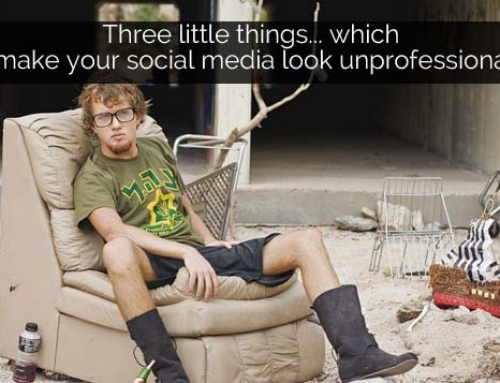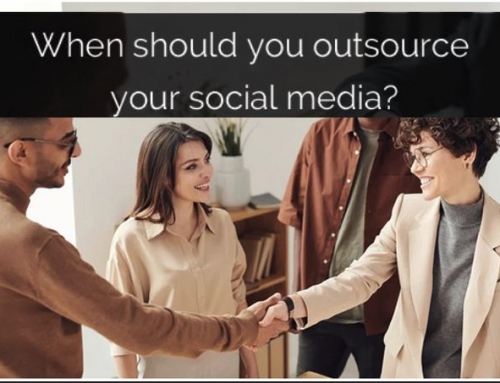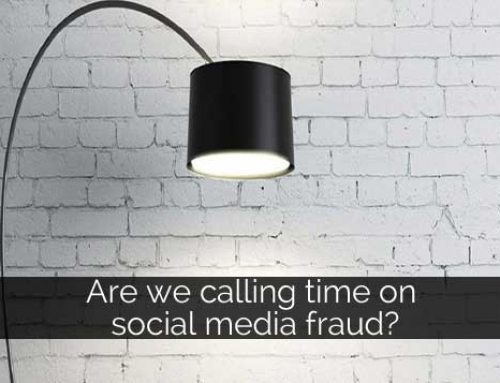Facebook’s hefty Page Terms have been an ongoing source of annoyance for many business marketers. They were Small Print personified, and often seemed to contain rules for the sake of rules, often hard to comply with (no more than 20% text in your page Cover Banner?!) and serving no obvious purpose.
In the last month or so that’s changed. The regulations have been seriously slimmed down, leading to a fair bit of celebration online.
The two main areas of change have been the rules around cover banners, and those relating to contests and competitions.
Cover Banner restrictions removed
First, the unarguable good news. All the rules around cover images have been removed, so that huge list of things you couldn’t do – from including contact details to reminding people to click the “Like” button – no longer apply.
This should allow businesses to use that huge area of page space more creatively and effectively. There is a risk that some will turn it into the equivalent of the advertising section of the local free paper, cluttered and stuffed with cheesy “special offers”, but hopefully most will resist that temptation.
Why the change? Who knows! Getting rid of the rules seems to make good sense, but then so would not having had them in the first place.
Facebook Competitions and Contests – It’s Open Season
…well, perhaps not quite, but the really big news was a similarly radical slimming down of the rules around running competitions.
The most significant part here was that we’re no longer forbidden from running competitions on the Wall – ie, making those “Best caption for this photo / answer to these quiz questions wins a prize” posts which, er, the majority of businesses were doing anyway. However, we do know of organisations whose pages have been deleted, with no warning, for going against those rules; and I bet we aren’t the only agency giving a sigh of relief at no longer having to explain to clients why they really shouldn’t do what everyone else seems to be getting away with!
Other things you’re now officially allowed to do include announcing winners on Facebook, and using certain Facebook functions as part of the entry criteria – for example, “like this post to enter”.
At first glance this is all good, BUT….there definitely is a “but”.
Will the rule changes help businesses?
It’s pretty obvious why Facebook have made this particular change; firstly almost nobody was keeping the rules anyway, but more importantly, those who were keeping them were often doing so by running the competition somewhere other than on Facebook. So they’d announce the contest in a Wall post, but then provide a link off to their website where the competition was actually happening,
From Facebook’s point of view, they have just shot themselves in the foot. They want their users to spend as much time as possible within Facebook, so that they can charge advertisers to promote their “stuff” to those users. If something as alluring as a good competition is taking them off onto another organisation’s website, that’s counter productive. So encouraging businesses to build the competition into their Facebook Page makes a lot more sense.
But looking at the likely consequences of this from a business marketing perspective, there are still a couple of significant risks, we think.
Firstly, there are a few sneaky “gotchas” embedded in either the rules or the practicalities around competitions, which are likely to leave unwary businesses still falling foul of the new rules. While you can use some Facebook functions as part of the entry criteria, those which impact on personal timelines are still off limits. So you may not require a user to Share a post, or to tag themselves in an image which isn’t actually of them (do I see lots of self portrait photo competitions on the horizon?! Only time will tell!).
The other issue is that although you’re no longer prevented from announcing a contest winner on the Wall, that isn’t going to work well most of the time – you’re just relying on that particular post making it into the winner’s news feed, and them bothering to read it.
As Business Pages can’t tag individuals except in very limited circumstances, and can’t write on a Profile’s Wall or send them a message, some way of collecting contact details is still needed. Which, in practise, will mean you still need an entry form – either as part of an App on a separate tab, or on your own website. In theory you could ask users to post their email address or phone number on your Page as part of the entry, but as that’s totally public it seems unlikely that many users would be keen!
Poorly designed contests = poor marketing results
The biggest risk though, is that making competitions look easier means that many businesses will be tempted (or poorly advised by bad agencies) to run super-popular giveaways “in order to increase their Likers“.
That is a Very Bad Idea.
Why? Because in the era of online Comping resources, word spreads very quickly about any giveaway worth having. Sounds good? It’s not.
What you will actually end up with is a bigger “Liker” number, sure, but that number will be made up of a lot of people who wanted to win an Ipad. What you want to happen, really, is for that number to be made up of a lot of people who are interested in your product or service.
So there is the big “gotcha”: just because your giveaway is now compliant with Facebook’s rules, that doesn’t mean it will be a constructive marketing tool. With very many of the contests we see on Facebook, it’s obvious that this hasn’t been thought through – the competition itself is generic (“like this page to win”) and so is the prize. More contests will very likely mean more costly, but potentially pointless, giveaways.
There are also knock-on effects which last the lifetime of your page. Any time you want to create an Offer or boost a Post to your page likers, you can’t distinguish between “useful” ones and the useless ones you picked up through a set of bad competitions. So that means, you’ll be paying Facebook to market to both sets.
How to make good use of the rule change
Our advice is, be really careful about designing your contest. At every stage, you must be able to explain how it will attract the right kind of people, and ideally how the more right they are, the more likely they are to win. Here’s our bonus example of how that might work….
Let’s say you’re marketing a camera shop, and want to increase the number of serious (professional or semi-professional) photographers amongst your Likers. Instead of asking for a “Like” or even a comment as the entry mechanism, make the entry criteria uploading an image. But not just any image….one created using a particular piece of kit – a camera or lens which doesn’t appeal to “point and shoot” users. Immediately your entries should be self selecting – and that’s before we get on to what the prize might be!
It’s not that difficult really, but as with launching on social media itself, the less hassle and cost is involved, the less thought many organisations will put into it. Don’t be that guy!







Leave A Comment